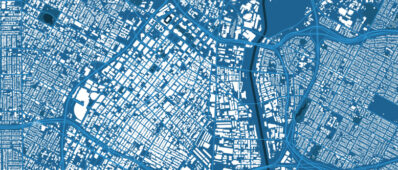conference paper
Archives: Research Products
research report
Analyzing the 2012 California Household Travel Survey using R: Summary
Publication Date
Associated Project
Author(s)
Areas of Expertise
Abstract
The 2010-12 CHTS, which resulted from a statewide, collaborative effort, enabled the collection of travel information from 42,560 Californian households. This rich dataset has helped update regional and statewide travel and will help update environmental models. In 2014, the Institute of Transportation Studies at Irvine (ITS) and Caltrans initiated the “Enhancing the Value of the 2010-12 California Household Travel Survey (CHTS)” contract. This contract was motivated by the idea that potential value of the CHTS is not always well understood by Caltrans staff and that some Caltrans staff from the Office of Travel Forecasting and Analysis may benefit from updating their knowledge of statistical modeling to comfortably query CHTS data and to estimate some common transportation econometrics models. The this document provides numerous examples of how to perform various types of statistical analysis on the CHTS. In chapter 2, we discuss the computation of statistical weights for various subpopulations in the CHTS—a critical component of any analysis involving the CHTS. In chapter 3, we cover the creation of a “linked trip” dataset, which provides a means for analyzing CHTS data in a manner that is compatible with conventional 4-step, trip based models. Finally, chapter 4 describes the solution of a number of statistical queries that were answered under task 4 statistical support tasks.
Suggested Citation
Craig Ross Rindt, Suman Kumar Mitra and Jean-Daniel Saphores (2016) Analyzing the 2012 California Household Travel Survey using R: Summary. Research Report. ITS-Irvine. Available at: https://drive.google.com/file/d/1B2aWB9AETBJaRknKsts484wK_YCuf2ZJ/view?usp=drive_link.published journal article
Farewell and thanks
Journal of Urban Affairs
Publication Date
Author(s)
Suggested Citation
Victoria Basolo (2010) “Farewell and thanks”, Journal of Urban Affairs, 32(4), pp. 403–403. Available at: 10.1111/j.1467-9906.2010.00523.x.conference paper
On the Cybersecurity of Traffic Signal Control System with Connected Vehicles
100th Transportation Research Board (TRB) Annual Meeting
Publication Date
Author(s)
Suggested Citation
Yiheng Feng, Shihong Huang, Wai Wong, Qi Alfred Chen, Morley Mao and Henry Liu (2021) “On the Cybersecurity of Traffic Signal Control System with Connected Vehicles”. 100th Transportation Research Board (TRB) Annual Meeting, Washington, DC.conference paper
Evaluation of a shared-use electric vehicle program: Integrating a web-based survey with in-vehicle tracking
17th PacRim regional science association meeting, portland
Publication Date
Author(s)
Suggested Citation
Ming S Lee, James E Marca, Craig R Rindt, Angela M Koos and Michael G McNally (2001) “Evaluation of a shared-use electric vehicle program: Integrating a web-based survey with in-vehicle tracking”, in 17th PacRim regional science association meeting, portland.published journal article
Re-envisioning the Park-and-Ride concept for the automated vehicle (AV) era with Private-to-Shared AV transfer stations
Transportation Research Part A: Policy and Practice
Publication Date
Author(s)
Abstract
Cities implemented park-and-ride (PNR) systems to decrease congestion in dense urban areas while providing transit options to travelers who live in a city’s low- to medium-density regions. The success of PNR systems is mixed, as they suffer from several disadvantages, namely, the uncertainty of parking locations and infrequent and/or unreliable transit services, and the fact that travelers still need to walk to their destination. Motivated by the premise of PNR systems and the potential of automated vehicles (AVs), to address each of the shortcomings of PNR systems, this study proposes a future system with near-ubiquitous AVs where travelers transfer from privately owned AVs (PAVs) to shared-use, shared-ride AVs (SAVs), called a PAV-SAV transfer system. This study proposes a modeling framework to assess the potential market share of the PAV-SAV transfer system and the network impacts (e.g., congestion, vehicle miles traveled) of the proposed system. Finally, the study identifies good designs for the PAV-SAV transfer system using scenario analysis. The critical design variables are the location of transfer stations, the capacity of SAVs, and the transfer station connector links. For the Greater Los Angeles area, the computational results show a market share for PAV-SAV of almost 18% for person trips terminating in downtown Los Angeles. In all scenarios, the proposed PAV-SAV system decreases vehicle hours traveled (VHT) across the whole network with significant decreases in the urban core. For all designs, the PAV-SAV system decreases vehicle miles traveled (VMT) compared to a network without PAV-SAV transfer stations, albeit only slightly. Locating transfer stations closer to the urban core, increasing vehicle capacities, and connecting transfer stations to both arterial links and highway links improves network performance (i.e., VMT and VHT) and increases the market share of the PAV-SAV system.
Suggested Citation
Younghun Bahk, Michael Hyland and Sunghi An (2024) “Re-envisioning the Park-and-Ride concept for the automated vehicle (AV) era with Private-to-Shared AV transfer stations”, Transportation Research Part A: Policy and Practice, 181, p. 104009. Available at: 10.1016/j.tra.2024.104009.published journal article
Grocery shopping in California and COVID-19: Transportation, environmental justice, and policy implications
Transportation Research Part D: Transport and Environment
Publication Date
Associated Project
Author(s)
Abstract
To understand how COVID-19 changed grocery shopping and explore implications for transportation and environmental justice, we surveyed in May 2021 California members of KnowledgePanel®, the largest and oldest U.S. probability-based panel. We asked how frequently Californians grocery shopped before and during the pandemic, and how they may grocery shop afterward in-store, online with home delivery (“e-grocery”), or online with store/curbside pick-up (“click-and-pick”). We found that most Californians continued to grocery shop in-person during the pandemic, although less frequently than before. Many relied more on e-grocery (+8.9 %) and click-and-pick (+13.3 %), although older generations remained attached to in-store shopping. African American households grocery shopped in-store less than Whites pre-pandemic; post-pandemic, they may compensate with more e-grocery and click-and-pick. While higher levels of environmental injustice (based on CalEnviroScreen) were associated with less in-store shopping, we found no association with e-grocery or click-and-pick. Our results have implications for travel, food logistics, and parking management.
Suggested Citation
Lu Xu and Jean-Daniel Saphores (2022) “Grocery shopping in California and COVID-19: Transportation, environmental justice, and policy implications”, Transportation Research Part D: Transport and Environment, 113, p. 103537. Available at: 10.1016/j.trd.2022.103537.working paper
Using Longitudinal Methods for Analysis of a Short-Term Transportation Demonstration Project
Abstract
This paper documents an application of panel, or longitudinal data collection in the evaluation of a TSM (Transportation Systems Management) demonstration project. The project was a four-week demonstration of staggered work hours in downtown Honolulu during February-March 1988. The 4 wave panel survey elicited commuting experiences of approximately 2,000 downtown employees at two week intervals before and during the project. The sample involved both employees who participated in the project by shifting their work hours, and those who did not. The panel survey was augmented by floating0car observations of travel times on major routes into downtown Honolulu on the same four dates.The purpose of the analysis was to determine whether employee commute times were affected, and if so, how these changes were distributed among various employee segments. Two methods were used. First, travel time changes were estimated using paired t-tests. Second, regression equations were used to estimate project time savings as a function of trip length, route, and location of residence. Results show that travel time savings due to the project were typically small, less than ten percent. Nonparticipants experienced greater savings than participants, and some segments of participants experienced longer travel times during the project. The panel method proved to be an effective way to measure project travel time impacts and shows that the method is appropriate in short time applications.
Suggested Citation
Genevieve Guiliano and Thomas F. Golob (1990) Using Longitudinal Methods for Analysis of a Short-Term Transportation Demonstration Project. Working Paper Reprint No. 28. Institute of Transportation Studies, UC Irvine: University of California Transportation Center. Available at: https://escholarship.org/uc/item/2j98g38s.working paper
Network Connectivity and Price Convergency: Gas Pipeline Deregulation
Publication Date
Associated Project
Author(s)
Abstract
We use graph theoretic methods to model arbitrage on the evolving topology of the natural gas pipeline network following pipeline deregulation. We estimate models of spot prices over the network and show that the emergence, evolution and performance of natural gas pipelines brought about by the Federal Energy Regulatory Commission’s policy of “Open Access”. Under open access, the balkanized and disconnected network of gas markets created by regulation became more strongly connected, transportation markets developed, and natural gas spot prices converged. The pace of these changes can be linked to the degree of openness and connectedness of the pipeline network; it took four years for the network to reach a critical level of connectivity to bring convergence to prices. By 1990, gas markets had become thick enough to dampen the effect of demand and supply shocks on prices at each point in the network.
Suggested Citation
Arthur De Vany and W. David Walls (1993) Network Connectivity and Price Convergency: Gas Pipeline Deregulation. Working Paper No. 202. Institute of Transportation Studies, UC Irvine: University of California Transportation Center. Available at: https://escholarship.org/uc/item/9n876133.published journal article
Tenant Riskiness, Contract Length, and the Term Structure of Commercial Leases
Management Science
Publication Date
Author(s)
Abstract
This paper explores the connection between tenant riskiness, commercial lease length, and the term structure of lease contracts. Theory shows that the possibility of default on a long-term lease generates a risk/lease-length connection. The empirical work uses a large CompStak lease data set combined with tenant characteristics (including risk) from Dun & Bradstreet (D&B). Regressions show that lease length is inversely related to the D&B risk measures, as predicted, and that risky tenants pay a higher rent premium for long-term contracts than low-risk tenants. The presence of such tenants thus raises the slope of the term structure of commercial rents. This paper was accepted by Tomasz Piskorski, finance. Supplemental Material: The data files are available at https://doi.org/10.1287/mnsc.2024.04959 .




